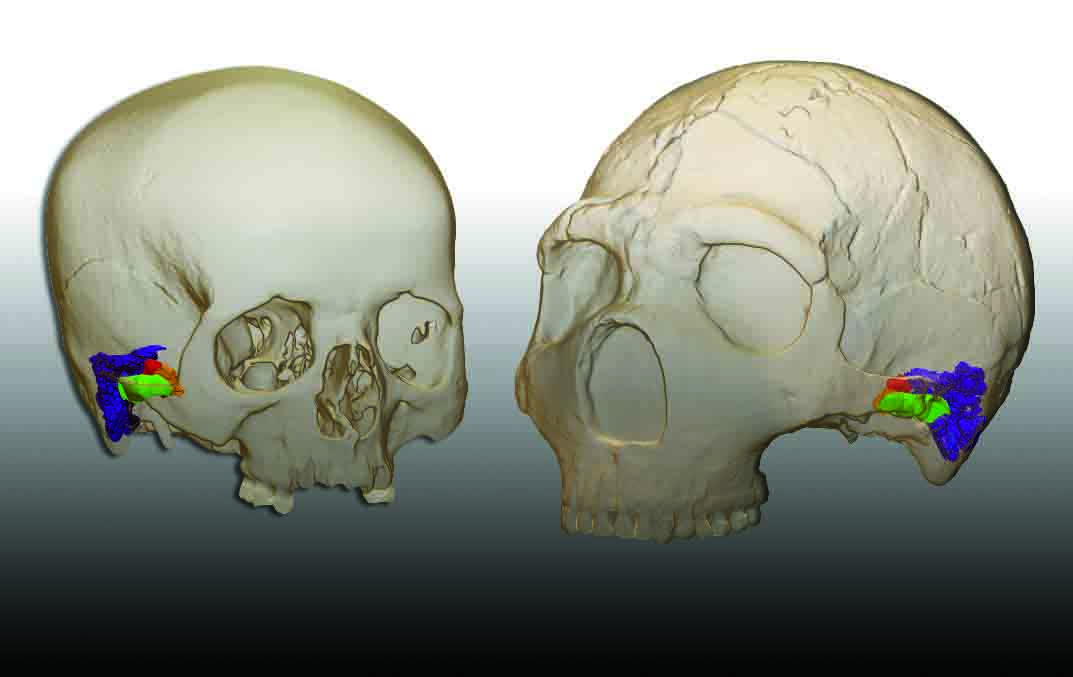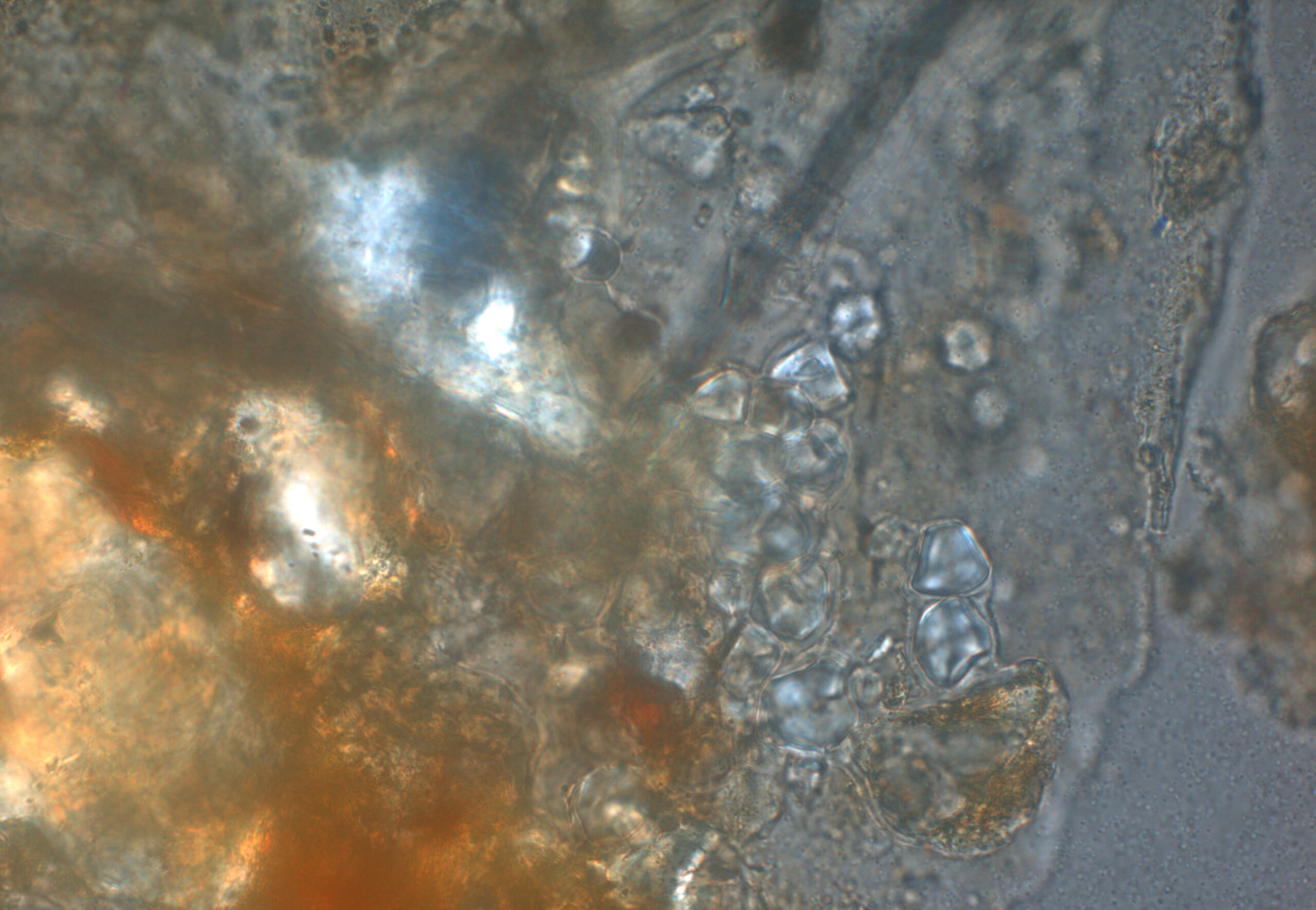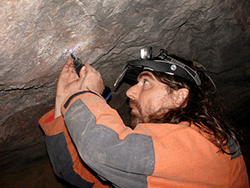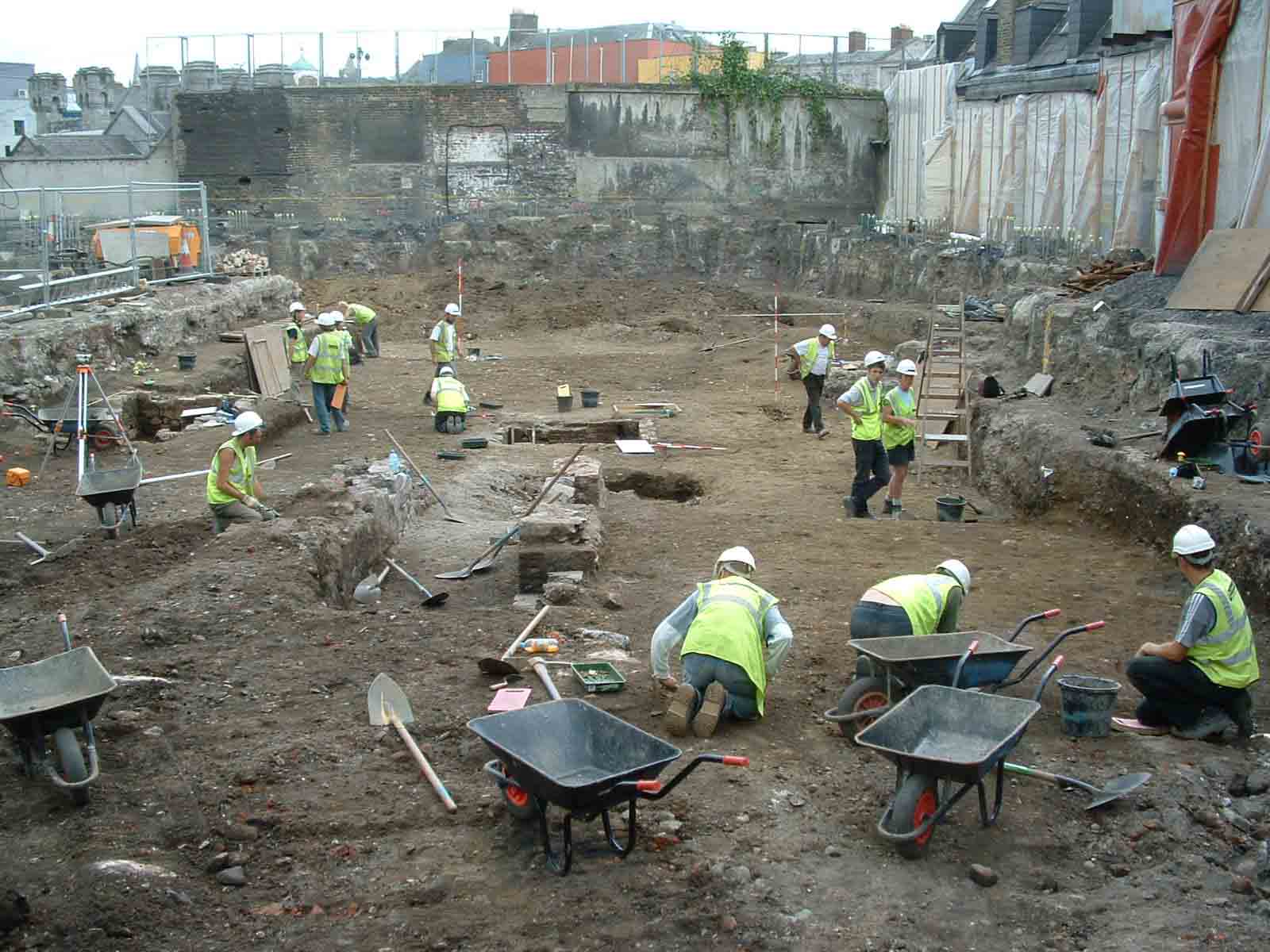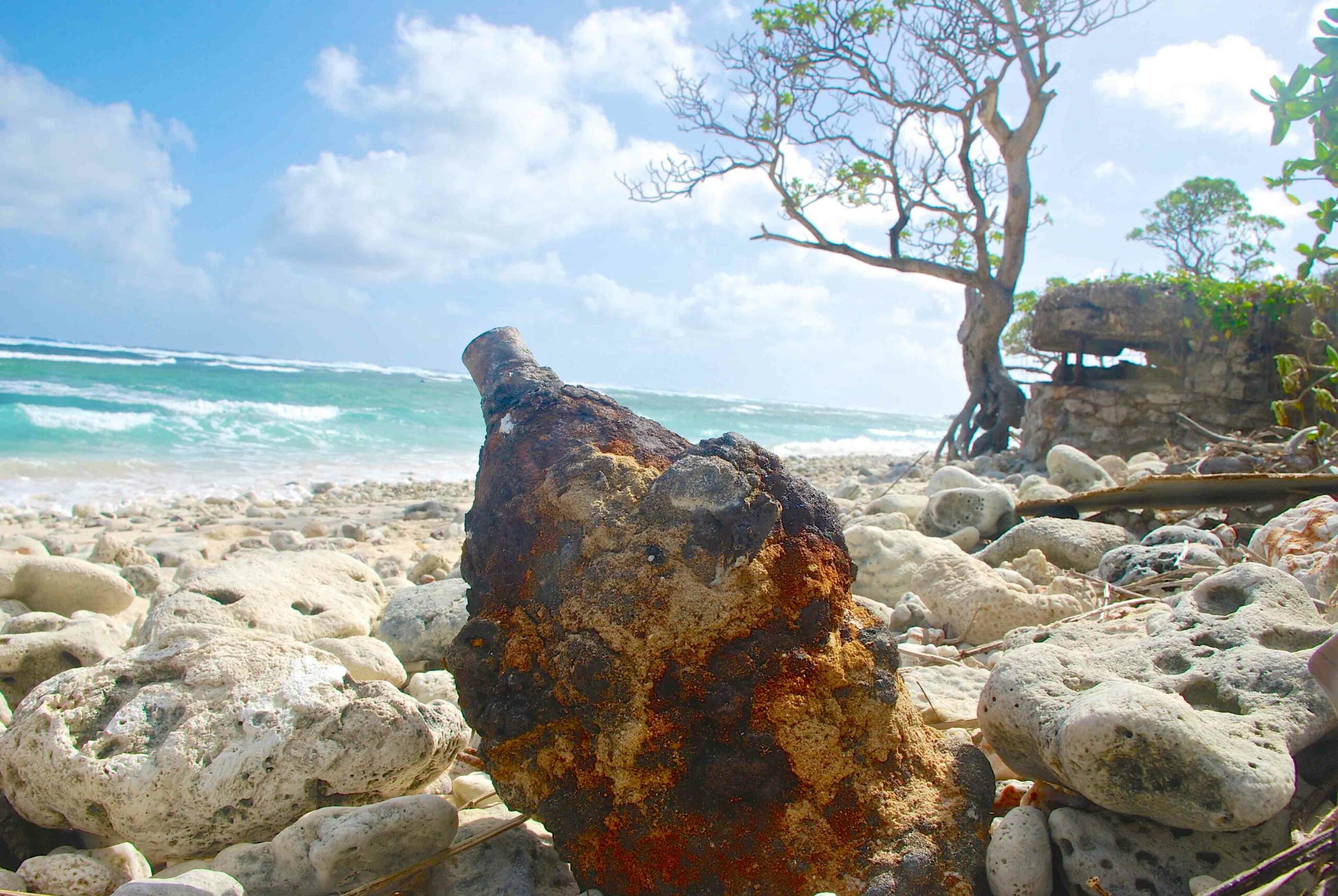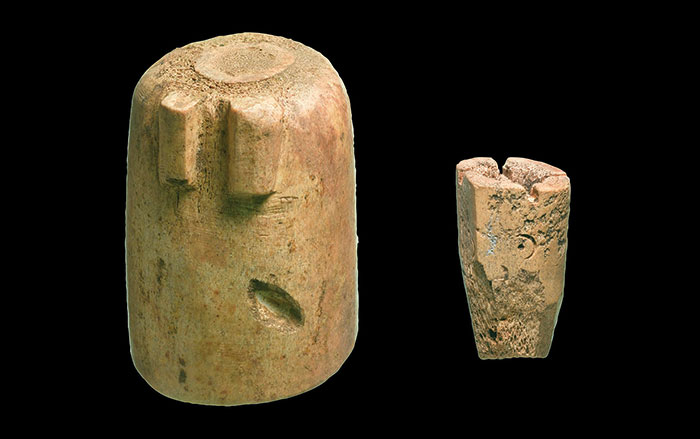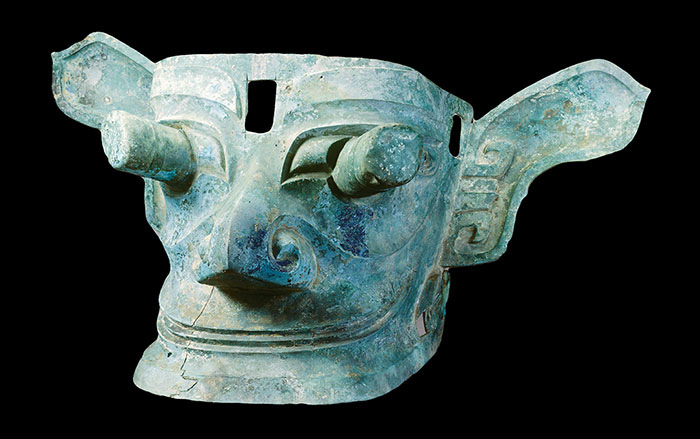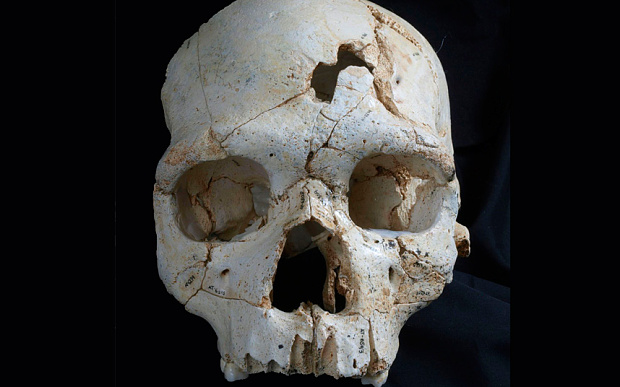
MADRID, SPAIN—Discovery News reports that a new analysis of Cranium 17 from Spain’s Sima de los Huesos suggests that the individual had been killed some 430,000 years ago by two blows to the head with the same object. The Sima de los Huesos, or Pit of Bones, is located at the bottom of a deep shaft in an underground cave system in northern Spain. It contains the remains of at least 28 individuals who are thought to be proto-Neanderthals and Neanderthals, but how the remains arrived in the pit has been a mystery until now. “Given that either of the two traumatic events was likely lethal, the presence of multiple blows implies an intention to kill,” wrote Nohemi Sala, a researcher at Centro Mixto UCM-ISCIII de Evolución y Comportamiento Humanos and lead author of the study published in PLOS One. Sala suggests that the blows to the skull indicate that the bodies of the dead must have been placed there. The Pit of Bones could thus “represent the earliest funerary behavior in the human fossil record.” To read about recent DNA research into the Sima de los Huesos remains, go to "Our Tangled Ancestry."


